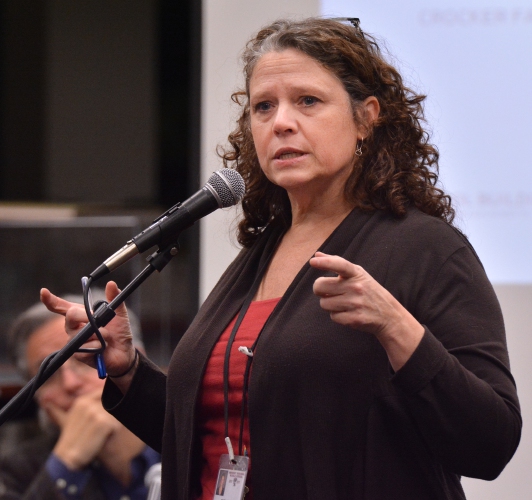Another summer, another superintendent for Amherst public schools.
Since 2000, the school district has been under the guidance of five superintendents — six if you double count the husband-wife team that ran the schools for under a year.
This isn’t normal, and it certainly isn’t desirable. The town’s inability to hang onto a school superintendent has cost Amherst taxpayers hundreds of thousands of dollars in contract payouts. This time around it’s going to cost Amherst $309,000 to sever ties with its superintendent, Maria Geryk.
In July, Geryk, who has been with the school district in various roles since 2002 — including a few stints as interim super — let officials know she wants to exit her contract two years early. And while a sequence of votes and meetings are still unfolding, all actions so far point to a swift, lucrative exit for Geryk.
The public school district’s three school committees (Amherst, Pelham, and Amherst-Pelham Regional) are charged with finding and hiring a superintendent. The committees are made up of dedicated, elected volunteers, many of whom have educational experience and/or children in the district. But the committees have shown time and again that hiring and retaining superintendents is not their forte. The common denominator in the town’s superintendent saga is the work of the committees. It’s time for some introspection.
The average tenure of a superintendent is five years, said Thomas Scott, executive director of the Massachusetts Association of School Superintendents. But in Amherst, the average has been three years.
Some administrators leave for greener pastures, Scott said in a Daily Hampshire Gazette article on Geryk’s status. Whether they stay has a lot to do with “how closely the committee works with them … the culture of the environment.”
In Geryk’s lone statement about her plans to leave, the educator says she decided to negotiate her departure so that she could live a “happy and professionally fulfilled” life.
“I believe that education is the most important mission-related work there is. I have also always believed it is important to work and live in the way that makes you personally happy and professionally fulfilled,” she wrote. “While the decision to leave was extremely difficult, it was clear to me that I had no choice but to take this step so that I could live true to this belief.”
This does not sound like a superintendent who felt like the school committee or community had her back.
There was a time, though, when Geryk did have the support of the community. In 2011, school officials and the town at large encouraged Geryk to step out from behind the administrator’s desk and into the superintendent’s position — a move she declined to make when she was the interim in 2010.
But after eight months of superintendent Alberto Rodriguez and, before that, the under-a-year co-superintendents Alton and Vivian Sprague served, Amherst was thirsty for stability.
The Geryk era of good feelings, however, didn’t last. The community withdrew its support, citing specific incidents in which Geryk did not meet Amherst’s expectations for a superintendent. The superintendent found herself in the center of several high-profile controversies:
1.) In 2013-14, racially charged graffiti targeting black teacher Carolyn Gardner was discovered four times in the school. Many people in the community were critical of the school’s handling of the situation. Gardner filed a complaint with the Massachusetts Commission Against Discrimination, but Amherst and Gardner settled the dispute without a determination from MCAD.* Gardner got a $180,000 settlement from the district.
2.) In 2014, Amherst-Pelham Regional High School was closed when a student posted a threatening, violent message on Facebook about bringing a weapon to school. The posting student was discovered and suspended; his mother complained that her son was being discriminated against because he’s white.
3.) Also in 2014, the district brought in speaker Calvin Terrell to talk at an assembly about bullying and its impact. Some middle schoolers were upset by the contents of the event and parents complained bitterly.
4.) This year, Geryk imposed a protection order against a black mother who, for months, had been attempting to get the superintendent to help stop racially motivated bullying against her 6-year-old. The order prevented the parent from going to the school, even to pick up her child.
Amherst needs to reevaluate what it wants and needs in a superintendent and how the community will find and support such a person. This expensive revolving door on the super’s office has to be taken down.
Contact Kristin Palpini at editor@valleyadvocate.com.
* A previous version of this article said the Massachusetts Commission Against Discrimination sided with Gardner, but the commission never delivered a determination. Gardner and Amherst settled the dispute before MCAD investigated the claim.



